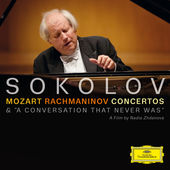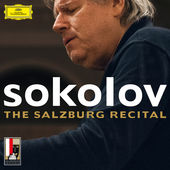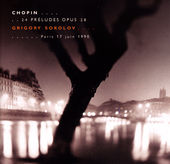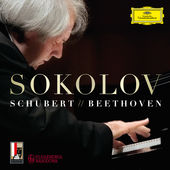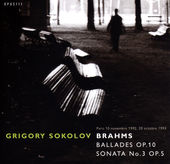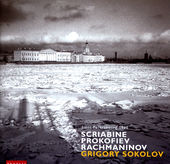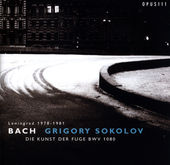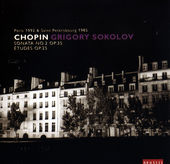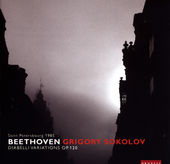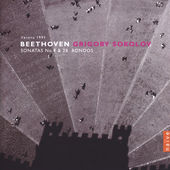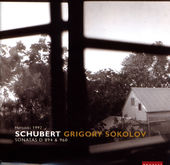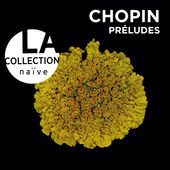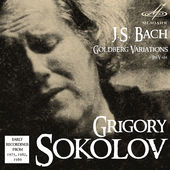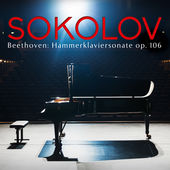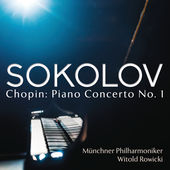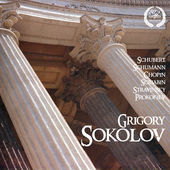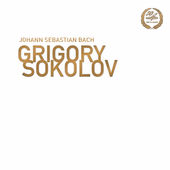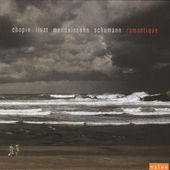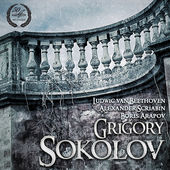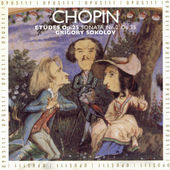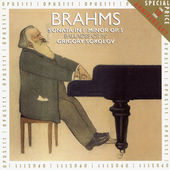| Angela Sulivan |
[email protected] | +44 (0) 7958 207210 |
BIOGRAPHY
In the 40 years since the 16-year-old Grigory Sokolov was awarded first prize at the International Tchaikovsky Piano Competition in Moscow in 1966, the world has been blessed with what one American critic recently called "a kind of pianism, musicianship and artistry one thought had vanished forever". Championed at a young age by Emil Gilels and a prominent figure on the Russian music scene since his early teens, Sokolov has gained an almost mythical status amongst music-lovers and pianophiles throughout the world. He is considered by many today to be the world's greatest living pianist.
Ever since his first major piano recital in Leningrad at the age of 12, Sokolov has amazed everyone again and again with the enormous breadth of his repertoire and his huge, almost physical musical strength. Using little pedal, and thus superior finger-work, he draws from the concert grand an immense variety of sounds; he has an unlimited palette of colours, a spontaneous imagination and a magical control of line. His interpretations are poetic and highly individual, and his rhythmic freedom and elasticity of phrase are perhaps unequalled among pianists today.
Those who are used to his art are most particularly attracted by the naturalness of his performing manner, which is part of his artistic credo. His playing betrays no influence from past masters, his style and approach are entirely his own, and are completely unique. Whatever Grigory Sokolov performs, be it a Pavane of William Byrd, a Bach Toccata, Chopin Mazurka or a Prelude of Ravel, it suddenly sounds completely new. Even a familiar Beethoven Sonata can be rediscovered as a new piece. But all this magic has its earthly roots: Sokolov knows more about a Steinway than many piano technicians, and before he sits down to play a strange instrument, he first examines its inner mechanics, taking it to pieces. He is used to studying for many hours every day, and even on the day of a concert, practices on stage for hours, “getting to know” the piano. That he prefers his CDs to be recorded live is not surprising, since he likes to capture the sacred moments of a real, live concert and avoid the sterile atmosphere of a studio. The Daily Telegraph wrote after his sell-out Wigmore Hall recital in June 07: “No fewer than six encores attested both to the voracious appetite for more that Grigory Sokolov instils in his audiences and to his discerning choice of ingredients for a stimulating, substantial and fulfilling recital”. It is not at all surprising that Russia's bestkept musical secret of the '60s and '70s has since earned an almost religious following in the West.
Grigory Sokolov is regularly invited to perform at the most prestigious concert halls and festivals of Europe, Japan and the USA. He has performed in London, Paris, Vienna, Berlin, Madrid, Salzburg, Rome and New York, and worked with many of the world’s most prominent conductors including Neeme Järvi, Charles Dutoit, RiccardoChailly, Herbert Blomstedt, Valery Gergiev, Claus Peter Flor, Trevor Pinnock, Paavo Berglund, Jukka-Pekka Saraste, Yan Pascal Tortelier, Walter Weller, Alexander Lazarev, Evgeny Svetlanov. He has worked with orchestras including the New York Philharmonic, Montreal Symphony, Münchner Philharmoniker, Leipzig Gewandhaus, the Philharmonia, Amsterdam Concertgebouw and Detroit Symphony. Sokolov has made a number of live recordings for the Melodya and Opus 111 labels. These include works by Bach, Beethoven, Brahms, Chopin, Rachmaninoff, Prokofiev, Schubert, Schumann, Scriabin, and Tchaikovsky, and most recently a critically acclaimed DVD of a 2002 Paris recital directed by Bruno Monsaingeon.
VIDEOS



DISCOGRAPHY
Top recommendations
- UK Casino Not On Gamstop
- UK Casinos Not On Gamstop
- Non Gamstop Casino
- UK Casinos Not On Gamstop
- UK Online Casinos Not On Gamstop
- Non Gamstop Casinos
- Sites Not On Gamstop
- Best Betting Sites Not On Gamstop
- Non Gamstop Casinos
- Casino Not On Gamstop
- Non Gamstop Casino
- Non Gamstop Casinos 2025
- Non Gamstop Casino Sites UK
- Gambling Sites Not On Gamstop
- Best Non Gamstop Casinos
- Non Gamstop Casino UK
- Casino Not On Gamstop
- Best Slot Sites
- Non Gamstop Casinos
- Best Online Casinos Uk
- Gambling Sites UK
- Non Gamstop Casino
- Casino Not On Gamstop

_mngr8hqkdif2e2jy8j4c7e.jpg)
